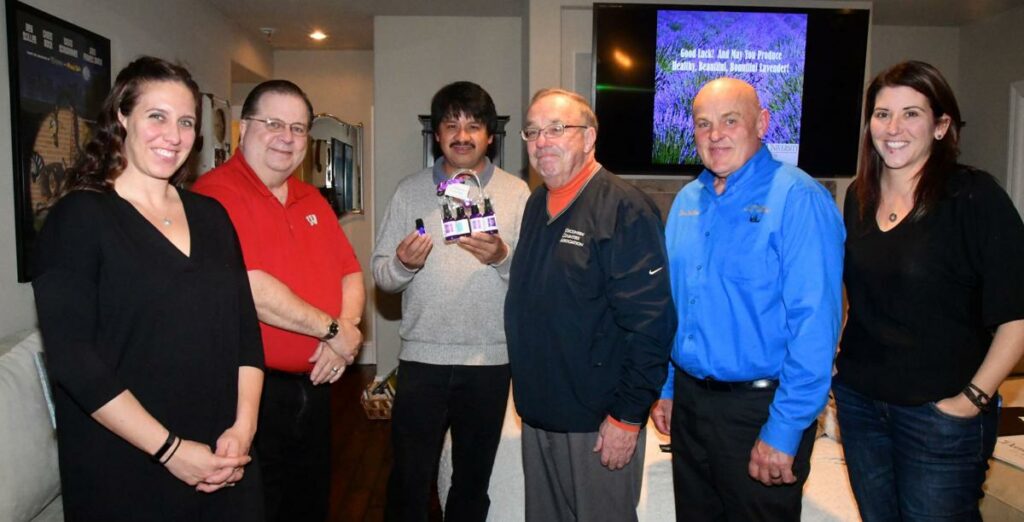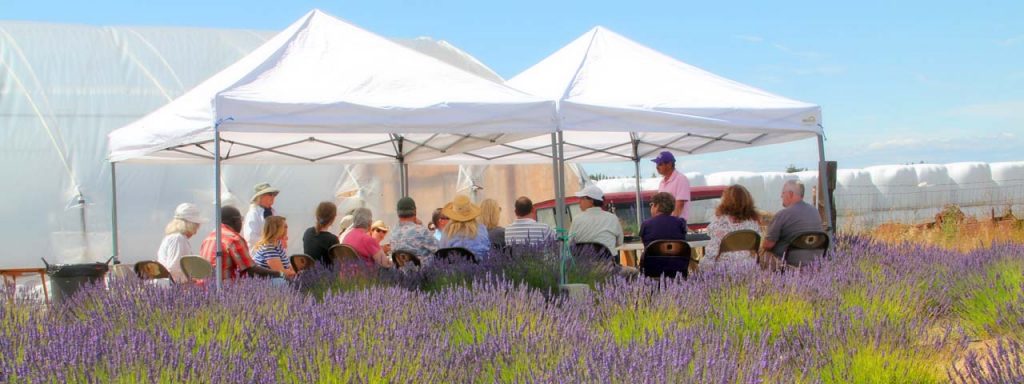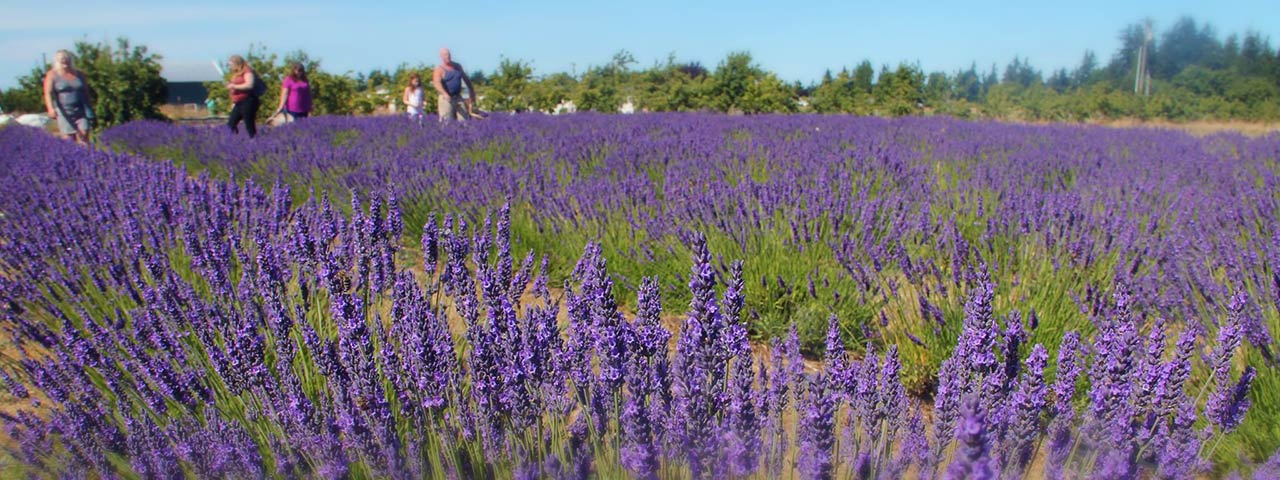Victor Gonzalez’s life story is a hard one to believe — which is why it’s so compelling.
At age 16, he became an immigrant, leaving behind the farming village of Villa Morelos, Mexico, to come north to the San Joaquin Valley of California. The year was 1986.
Victor has never been afraid of hard work. He found quite a lot of that in a fruit-packing house near Bakersfield, where he boxed oranges, tens of thousands of them, for shipping around the globe. At night he went to school to learn English.
During those years in California, Victor missed a young woman he had known back in Mexico. Her name is Maribel, and she was — is — “the love of my life,” he says.
So at 21, he returned home. Victor and Maribel reconnected. Four years later, in 1995, they were married and made their way again to California. The couple found work there, but in December of that year Victor, playing his beloved sport of soccer, broke his leg badly.
After that he had neither a job nor any idea what to do next.
Northern possibilities
Then came a twist of fate: Maribel’s brother, Jesús, told the pair about the place he had discovered in the far Pacific Northwest. Life is good up here in Sequim, Jesús said, and there is a lot of work in farming, ranching and building. Victor and Maribel took a chance, packed their belongings and drove across three states. When they saw the Dungeness Valley, with its towering evergreen trees and blue Strait of Juan de Fuca, it looked to them like a dream.
More alluring than the natural splendor, Victor recalls, was the welcome he felt from the farmers here. Himself the son of a farming family — his parents grew vegetables and raised livestock — he saw himself making a life on this sun-splashed prairie. Maribel’s brother helped Victor find his first job in Sequim: at the Cedarbrook Lavender & Herb Farm south of town. He spent his days working in the fields and painting and remodeling Cedarbrook’s buildings; nights he worked in the Petals restaurant.
Victor and Maribel had started a family by now. They felt, as many still do, that this small, tightly knit community was the right kind of place to raise their children.
But the winters here were tough. Cedarbrook couldn’t keep Victor on, so he went looking for work elsewhere in the valley. As the caretaker of a sprawling ranch at Port Williams, he fixed fences and did whatever else needed doing. He also planted a vegetable garden, which impressed the rancher so much that Victor was given the green light to expand it — and to begin cultivating the crop a small group of people in Sequim had begun to explore. This new plant had medicinal properties; it smelled sweet in the air and tasted good in gourmet foods. It had the power, this group believed, to transform the valley.
A rough start
Victor’s first lavender venture involved 200 plants and a book. Working for a local landowner, he was tasked with starting a prototypical lavender garden. But “every single one of the plants died,” Victor recalls. Never mind that he followed everything the book said. This would-be grower was at a loss.
Victor tried again, again with a book’s instructions, and again watched the lavender shrivel.
Then he found out about a special Washington State University Extension course for local farmers. To get into this “farming school,” as Victor calls it, he had to present a project.
His would be lavender. Only this time Victor would grow his garden based not on books but on his intuition. He listened to his own sense of what worked, born of years on farms in Mexico, in California and, most important, in the Dungeness Valley. Along with a handful of other local farmers, Victor found success in Sequim’s new crop. Lavender fields began to bloom and thrive north, south, east and west of downtown Sequim; a July festival celebrating all things lavender began in 1996. Locals and visitors discovered the myriad possibilities of this purple flower, and word about Sequim spread across the country. Through it all, Victor wanted to innovate. Against all expectations, he’d found his calling among these fragrant plants. “I find lavender to be really nice,” he says, “and relaxing. I pretty much fell in love with the lavender.”
While other farmers focused on products — soaps, lotions, culinary blends — Victor’s specialty is cultivating the lavender plants themselves. Through experimentation and perseverance, he learned the most effective methods for germination and propagation. He became known as the man with the finest lavender anywhere.
By 2004, Victor was ready to establish his own farm. He found an old barn and a run-down house on 2 acres west of town and threw himself into renovating the whole spread. When he and Maribel moved onto their own small farm on Old Olympic Highway, they started the next chapter of their lives.
Can you come to us?
By this time, word had gotten around that a man in Sequim offered consulting services to potential lavender farmers. Victor had overcome his nervousness about public speaking: “I would shake all over,” he recalls, “but I knew I had to do it.” He started out giving presentations to visitors during the July lavender weekend festivities. Meantime, he expanded his operation to include 150 lavender varieties, and shipped plants to growers across North America. But he hadn’t imagined himself going much farther than, say, Seattle.

Then growers started calling — from everywhere. Can you come teach us how lavender thrives? Can you come to Lebanon? Morocco? Mexico?
Today Victor is a global expert, a lavender whisperer who has traveled to conferences and farms in Canada, and throughout the United States, from New Mexico to Michigan. He’s worked with families and farming organizations in the High Atlas Mountains of Morocco and in Beirut, Lebanon, where he was sent by the U.S. government as part of its agricultural aid program. Lavender farming was to become a key part of economic development across the region. Today Victor proudly displays a framed certificate, signed by President Barack Obama, acknowledging his work.
Travel abroad can be arduous. It’s the connections with people — farmers like himself — that make it all worthwhile. “Every time I travel somewhere, I meet wonderful people. They say, ‘Victor, I want you to stay with me.’ That’s what I love,” he says.
Some of these trips might have been less than appealing. Other consultants might choose to do their work via teleconferencing or Skype. But Victor believes in spending time in the environment where the farming happens, not only to learn about the natural elements but also about the values of the people there.
“I love to learn,” Victor says, “and to learn the culture, I have to go there.”
Lavender Products
As the wholesale lavender business grew, Victor also needed a line of handmade lavender products for sale at the farms, festivals, and online. Fortunately, he and Maribel had close friends, Beth Norris and Barb Landbeck who had owned Moose Dreams Lavender for more than 20 years. Moose Dreams made some of the best products in the valley, thanks to Beth’s scientific background and understanding of how lavender and the other natural ingredients work together. Their specialty is the extraordinary goat’s milk soap and lotion. Upon retiring from lavender farming, Barb and Beth gave their line of products to Maribel and taught their friend all about how to make their products at home, using the finest ingredients. Victor built a special kitchen for making the products, and Maribel now runs the retail line, while developing and expanding it with new products each year.
For Victor, who will celebrate his 50th birthday this summer of 2020, the farm is his American dream realized. It’s a coming together of his love for farming, his willingness to try something new, and his delight in sharing what he discovers.
“It’s all because of lavender,” he says.



